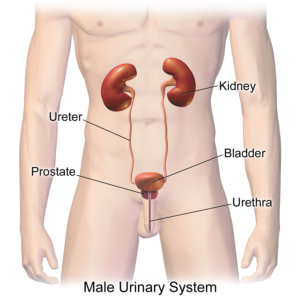
Our kidneys are incredibly important for our health. Unfortunately, some conditions (e.g., diabetes) and just getting older results in a decline in kidney function. Let's face it - as we age, our organs age.
But there is some good news. A recent study found that moderate and high intensity exercise slows down the risk of rapid kidney function decline in older adults. Exercise actually helps preserve kidney function.
A large study randomly assigned older adults (aged 70 to 77 years) to one of three groups: 1) moderate intensity exercise (peak heart rate 70%) for 50 minutes twice a week, or 2) high intensity interval training (peak heart rate 90%) for four minutes 4 times per week (with first a 10 minute warm-up), or 3) a control group that just received education.
There was a dose response relationship over the 5 years - the more exercise, and the more vigorous exercise - the better kidney function was, and less of a decline from aging. Also, the more exercise, the better the oxygen uptake. There were no heart disease related events (cardiovascular events) during the supervised exercise sessions.
Bottom line: Exercise at all ages, including older adults in their 70s, is good for health, including the kidneys. Move, move, move!
From Medscape: High-Intensity Interval Training Reduces Risk for Kidney Function Decline in Seniors
Supervised high-intensity interval training (HIIT) over 5 years reduced the risk for rapid decline in estimated glomerular filtration rate (eGFR) in community-dwelling adults aged 70-77 years.
-
- Exercise has shown benefits for the heart, brain, and musculoskeletal systems, but its effects on kidney function have not been adequately studied, even though international guidelines have recommended moderate to vigorous exercise for patients with chronic kidney disease.
- This post hoc analysis of a randomized trial conducted in Norway investigated the effect of different intensities of physical exercise on kidney function in 1156 older adults with normal or mildly decreased eGFR (median age, 72 years; 50% men; median eGFR, 95 mL/min/1.73 m2).
The HIIT group had a significantly lower risk for rapid eGFR decline than the control group.
"The current study demonstrates that high-intensity physical activity is feasible as a long-term intervention," the authors wrote. "Preservation of kidney function should be recognized as one of the numerous health benefits of high-intensity exercise training," they added.
From Medical Xpress: Physical activity shows dose-response relationship to kidney function decline in older adults
There is a dose-response relationship between physical activity and rapid kidney function decline in older adults, according to a study published online Feb. 11 in the Journal of the American Society of Nephrology.
